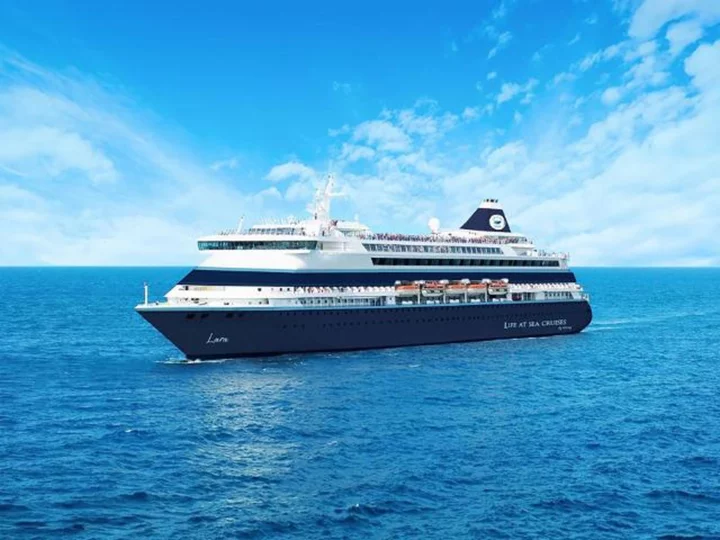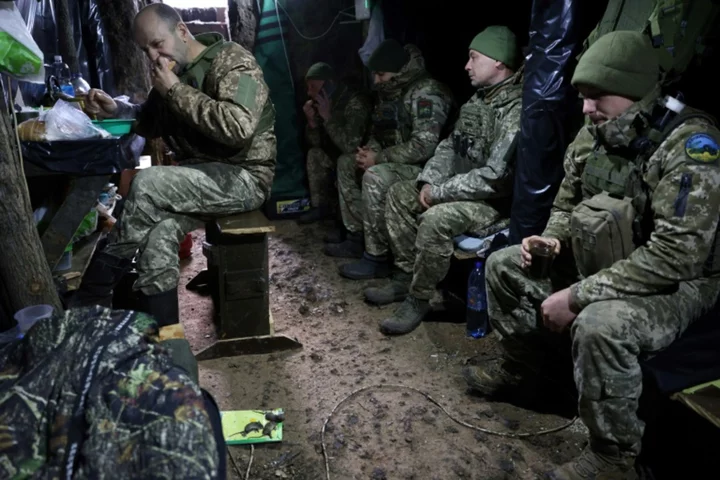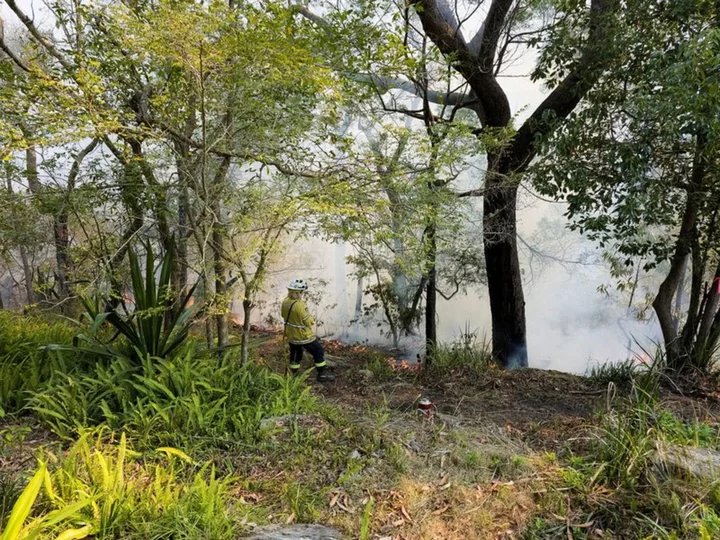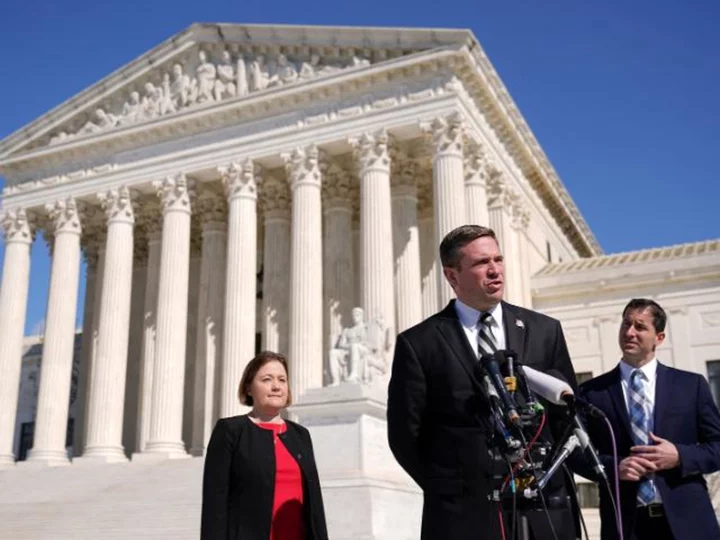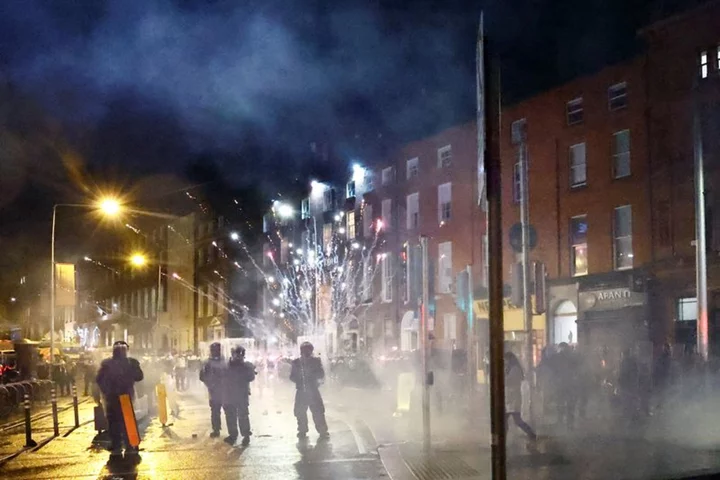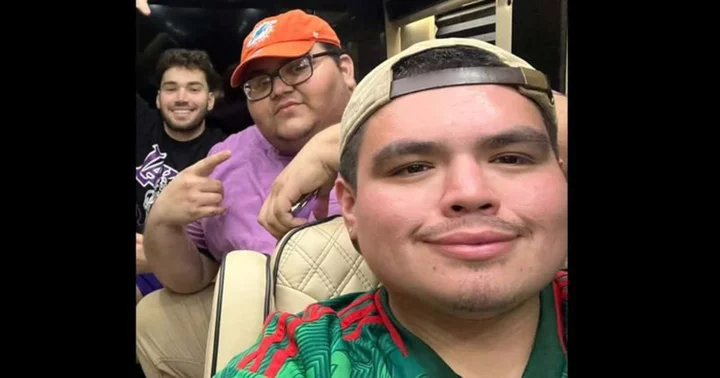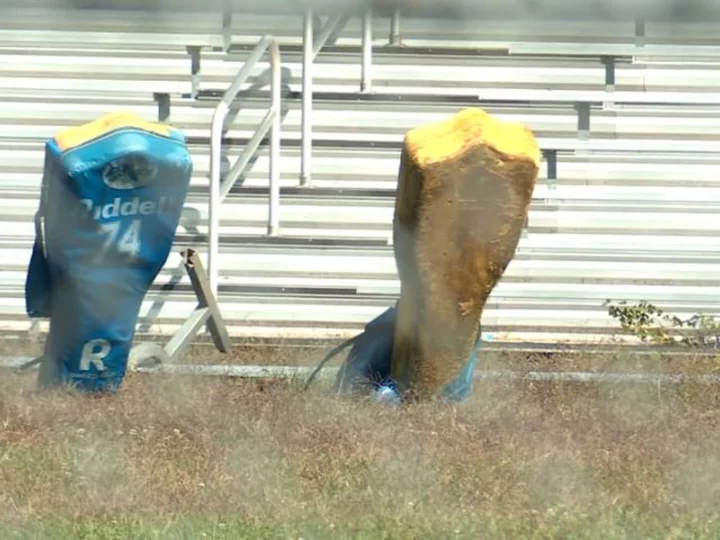Talks between a breakaway Armenian republic and Azerbaijan over the future of the wartorn region of Nagorno-Karabakh closed on Thursday without a final agreement, amid accusations Baku’s forces violated a ceasefire. A tense truce has been in place since Azerbaijan’s army claimed full control over the area after launching a lightning offensive against local Armenian forces on Tuesday. Residents of the Karabakh’s main city told The Independent that shelling and gunfire rang through the suburbs on Thursday morning. They added that a “humanitarian catastrophe” was unfolding as electricity had been completely cut off, food was running out and thousands of displaced civilians were hiding in shelters. Azerbaijani officials on Thursday agreed to provide humanitarian aid, including energy to heat kindergartens and schools, a statement from Azerbaijan president Ilham Aliyev’s office said. Meanwhile Mr Aliyev declared victory in a televised address to the nation, saying his country had restored its sovereignty over Nagorno-Karabakh. The Independent was unable to verify who was behind the attacks, which came amid talks to hammer out an agreement ahead of a United Nations Security Council meeting on the violence. Karabakh’s Armenian authorities blamed the assault on Azerbaijani forces. Baku’s defence ministry called the allegations it had broken the truce “completely false”. Thursday’s meeting held in the Azerbaijani town of Yevlakh ended in no firm deal. David Babayan, an adviser to Nagorno-Karabah’s ethnic Armenian leader Samvel Shahramanyan, told Reuters that while there was an agreement over the cessation of military action “we await a final agreement, talks are going on”. He said that there were not enough security guarantees in place to mean that local Armenian forces would give up their weapons. “A whole host of questions still need to be resolved,” he said. Both sides have been locked in a bloody battle over the mountainous Nagorno-Karabakh region, also known as Artsakh by Armenians, since the 1990s following the collapse of the Soviet Union. It is internationally recognised as part of Azerbaijan – which is backed by Turkey – but home to 120,000 ethnic Armenians who have enjoyed de facto independence. In 2020, a six-week war erupted which left 6,700 people dead and saw Azerbaijan reclaim about a third of the region. Russia, historically a close ally of Armenia that has long seen itself as a security guarantee in the South Caucuses, brokered a truce and dispatched 2,000 peacekeepers. That was broken on Tuesday by the Azerbaijan army that unleashed a fresh wave of artillery and drone strikes against the outnumbered and undersupplied pro-Armenian forces, raising concerns that a full-scale war could resume. The fighting worsened an already burgeoning humanitarian crisis for residents who have endured nine months of food, electricity and medicine shortages. This is due to Azerbaijan’s blockade of the “Lachin Corridor”, the road connecting Nagorno-Karabakh to Armenia. Nagorno-Karabakh human rights ombudsman Gegham Stepanyan said at least 200 people, including 10 civilians, were killed. The figures could not immediately be independently verified. Facing mounting pressure, local Armenian self-defence forces agreed on Wednesday to disarm and disband. The UN Security Council scheduled an urgent meeting on Thursday on the Azerbaijani offensive at the request of France. French president Emmanuel Macron condemned Azerbaijan’s decision to use force “at the risk of worsening the humanitarian crisis in Nagorno-Karabakh”. US secretary of state Antony Blinken denounced Baku’s use of military force saying that these actions “undermine prospects for peace: and were ‘unacceptable’”. Residents of the main city Stepanakert, which Azerbaijan calls Khankendi, said thousands of civilians had fled rural areas to the city centre and were now living in shelters without electricity and scant food supplies. “It’s unimaginably hard here. People can’t find food, we have over 10,000 people evacuated from villages, there are children, the elderly and missing people,” said Siranush Sargsyan, a freelance Armenian journalist in the city. “This morning we heard shooting and shelling, panicking the neighbourhood. People started to run,” she continued, adding that the biggest concern now was “staying alive and finding missing relatives”. She said network connection had been bad because of the lack of electricity meaning that many people were unaccounted for. “For the last three days, we haven’t had any electricity at all.” Gev Iskajyan, executive director of ANC, an Armenian lobbying group in the US, went as far as to say Thursday was “the final stage of Artsakh’s ethnic cleansing”. Also speaking from Stepanakert he said he feared a “mass exodus of people” from their homes. “We need to create mechanisms that would ensure the safe movement of the ethnic Armenians from Artsakh to Armenia,” he added. It’s unimaginably hard here. People can’t find food, we have over 10000 evacuees Siranush Sargsyan, journalist in Nagorno-Karabakh Sheila Paylan, an international human rights lawyer and former adviser to the UN, said the situation “couldn’t be more dangerous for the Armenians”. “The international obligation to intervene is [needed] now more than ever. There should be a possibility of international sanctions against Azerbaijan to change this condemnable behaviour,” she added. Restoring control over the war-ravaged region has been a key goal for Mr Aliyev, who on Wednesday said Azerbaijan had triumphed with an “iron fist”. “After the surrender of the criminal junta, this source of tension, this den of poison, has already been consigned to history,” Mr Aliyev said, focusing his anger on Karabakh’s leadership. He said the region’s ethnic Armenians would enjoy full educational, cultural and religious rights. All ethnic groups and faiths would be united as “one fist – for Azerbaijan, for dignity, for the motherland”. It has been a damning blow to the separatist Karabakh leadership and for Armenia, which helped Armenians in the enclave and fought two wars with Azerbaijan in the space of 30 years. Armenia’s foreign ministry condemned Azerbaijan’s military operation saying it was part of a “policy of ethnic cleansing”. Armenian prime minister Nikol Pashinyan later said that Armenians were going through “untold physical and psychological suffering”. Baku has faced mounting criticism from the international community for turning to force. Mr Macron, who spoke to Mr Aliyev on Wednesday, said the fighting compromised ongoing efforts to achieve “fair and lasting peace”. He stressed the need to respect the ceasefire and provide guarantees for “the rights and security of the people of Karabakh, in line with international law”. Protesters rallied in the Armenian capital of Yerevan for a third day on Thursday, demanding that authorities defend Armenians in Nagorno-Karabakh. The Russian foreign ministry has called for an “immediate halt to the bloodshed”. Read More Stones thrown as Armenian protesters clash with police after ceasefire Talks have opened on the future of Nagorno-Karabakh as Azerbaijan claims full control of the region Azerbaijan hails end of Armenian separatists’ advance in Nagorno-Karabakh Talks have opened on the future of Nagorno-Karabakh as Azerbaijan claims full control of the region Putin says Russia peacekeepers ‘doing everything’ to protect civilians as Azerbaijan claims full control of Nagorno-Karabakh Stones thrown as Armenian protesters clash with police after ceasefire Azerbaijan hails end of Armenian separatists’ advance in Nagorno-Karabakh UNGA Briefing: Permanent observers, more Security Council and what else is going on at the UN
Talks between a breakaway Armenian republic and Azerbaijan over the future of the wartorn region of Nagorno-Karabakh closed on Thursday without a final agreement, amid accusations Baku’s forces violated a ceasefire.
A tense truce has been in place since Azerbaijan’s army claimed full control over the area after launching a lightning offensive against local Armenian forces on Tuesday.
Residents of the Karabakh’s main city told The Independent that shelling and gunfire rang through the suburbs on Thursday morning. They added that a “humanitarian catastrophe” was unfolding as electricity had been completely cut off, food was running out and thousands of displaced civilians were hiding in shelters.
Azerbaijani officials on Thursday agreed to provide humanitarian aid, including energy to heat kindergartens and schools, a statement from Azerbaijan president Ilham Aliyev’s office said. Meanwhile Mr Aliyev declared victory in a televised address to the nation, saying his country had restored its sovereignty over Nagorno-Karabakh.
The Independent was unable to verify who was behind the attacks, which came amid talks to hammer out an agreement ahead of a United Nations Security Council meeting on the violence.
Karabakh’s Armenian authorities blamed the assault on Azerbaijani forces. Baku’s defence ministry called the allegations it had broken the truce “completely false”.
Thursday’s meeting held in the Azerbaijani town of Yevlakh ended in no firm deal. David Babayan, an adviser to Nagorno-Karabah’s ethnic Armenian leader Samvel Shahramanyan, told Reuters that while there was an agreement over the cessation of military action “we await a final agreement, talks are going on”.
He said that there were not enough security guarantees in place to mean that local Armenian forces would give up their weapons.
“A whole host of questions still need to be resolved,” he said.
Both sides have been locked in a bloody battle over the mountainous Nagorno-Karabakh region, also known as Artsakh by Armenians, since the 1990s following the collapse of the Soviet Union. It is internationally recognised as part of Azerbaijan – which is backed by Turkey – but home to 120,000 ethnic Armenians who have enjoyed de facto independence.
In 2020, a six-week war erupted which left 6,700 people dead and saw Azerbaijan reclaim about a third of the region. Russia, historically a close ally of Armenia that has long seen itself as a security guarantee in the South Caucuses, brokered a truce and dispatched 2,000 peacekeepers.
That was broken on Tuesday by the Azerbaijan army that unleashed a fresh wave of artillery and drone strikes against the outnumbered and undersupplied pro-Armenian forces, raising concerns that a full-scale war could resume.
The fighting worsened an already burgeoning humanitarian crisis for residents who have endured nine months of food, electricity and medicine shortages. This is due to Azerbaijan’s blockade of the “Lachin Corridor”, the road connecting Nagorno-Karabakh to Armenia.
Nagorno-Karabakh human rights ombudsman Gegham Stepanyan said at least 200 people, including 10 civilians, were killed. The figures could not immediately be independently verified.
Facing mounting pressure, local Armenian self-defence forces agreed on Wednesday to disarm and disband.
The UN Security Council scheduled an urgent meeting on Thursday on the Azerbaijani offensive at the request of France. French president Emmanuel Macron condemned Azerbaijan’s decision to use force “at the risk of worsening the humanitarian crisis in Nagorno-Karabakh”.
US secretary of state Antony Blinken denounced Baku’s use of military force saying that these actions “undermine prospects for peace: and were ‘unacceptable’”.
Residents of the main city Stepanakert, which Azerbaijan calls Khankendi, said thousands of civilians had fled rural areas to the city centre and were now living in shelters without electricity and scant food supplies.
“It’s unimaginably hard here. People can’t find food, we have over 10,000 people evacuated from villages, there are children, the elderly and missing people,” said Siranush Sargsyan, a freelance Armenian journalist in the city.
“This morning we heard shooting and shelling, panicking the neighbourhood. People started to run,” she continued, adding that the biggest concern now was “staying alive and finding missing relatives”.
She said network connection had been bad because of the lack of electricity meaning that many people were unaccounted for. “For the last three days, we haven’t had any electricity at all.”
Gev Iskajyan, executive director of ANC, an Armenian lobbying group in the US, went as far as to say Thursday was “the final stage of Artsakh’s ethnic cleansing”. Also speaking from Stepanakert he said he feared a “mass exodus of people” from their homes.
“We need to create mechanisms that would ensure the safe movement of the ethnic Armenians from Artsakh to Armenia,” he added.
It’s unimaginably hard here. People can’t find food, we have over 10000 evacuees
Siranush Sargsyan, journalist in Nagorno-Karabakh
Sheila Paylan, an international human rights lawyer and former adviser to the UN, said the situation “couldn’t be more dangerous for the Armenians”.
“The international obligation to intervene is [needed] now more than ever. There should be a possibility of international sanctions against Azerbaijan to change this condemnable behaviour,” she added.
Restoring control over the war-ravaged region has been a key goal for Mr Aliyev, who on Wednesday said Azerbaijan had triumphed with an “iron fist”.
“After the surrender of the criminal junta, this source of tension, this den of poison, has already been consigned to history,” Mr Aliyev said, focusing his anger on Karabakh’s leadership.
He said the region’s ethnic Armenians would enjoy full educational, cultural and religious rights. All ethnic groups and faiths would be united as “one fist – for Azerbaijan, for dignity, for the motherland”.
It has been a damning blow to the separatist Karabakh leadership and for Armenia, which helped Armenians in the enclave and fought two wars with Azerbaijan in the space of 30 years.
Armenia’s foreign ministry condemned Azerbaijan’s military operation saying it was part of a “policy of ethnic cleansing”. Armenian prime minister Nikol Pashinyan later said that Armenians were going through “untold physical and psychological suffering”.
Baku has faced mounting criticism from the international community for turning to force.
Mr Macron, who spoke to Mr Aliyev on Wednesday, said the fighting compromised ongoing efforts to achieve “fair and lasting peace”.
He stressed the need to respect the ceasefire and provide guarantees for “the rights and security of the people of Karabakh, in line with international law”.
Protesters rallied in the Armenian capital of Yerevan for a third day on Thursday, demanding that authorities defend Armenians in Nagorno-Karabakh.
The Russian foreign ministry has called for an “immediate halt to the bloodshed”.
Read More
Stones thrown as Armenian protesters clash with police after ceasefire
Talks have opened on the future of Nagorno-Karabakh as Azerbaijan claims full control of the region
Azerbaijan hails end of Armenian separatists’ advance in Nagorno-Karabakh
Talks have opened on the future of Nagorno-Karabakh as Azerbaijan claims full control of the region
Putin says Russia peacekeepers ‘doing everything’ to protect civilians as Azerbaijan claims full control of Nagorno-Karabakh
Stones thrown as Armenian protesters clash with police after ceasefire
Azerbaijan hails end of Armenian separatists’ advance in Nagorno-Karabakh
UNGA Briefing: Permanent observers, more Security Council and what else is going on at the UN


